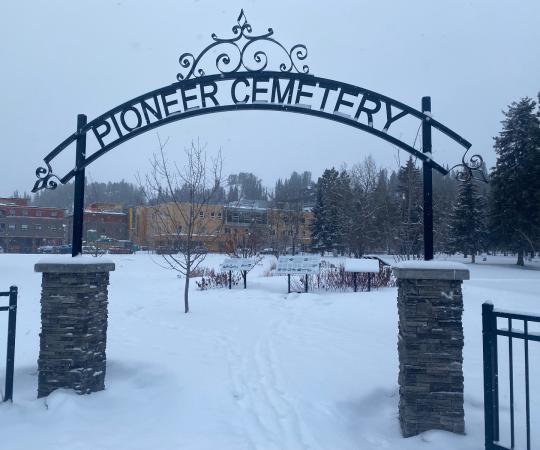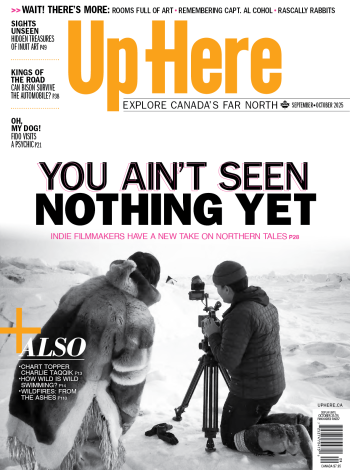In the weeks leading up to the dropping of the writ this fall, something in me snapped.
I can’t even recall the issue anymore (NTPC subsidy maybe?), but in response to some controversial government action, regular MLAs in the NWT bemoaned cabinet stubbornness for a decision once again made behind closed doors with little or no input from their side of the floor.
A light bulb went off. (Or maybe the fluorescents in my office flickered.) Wait, I thought, aren’t you the very people who voted in this cabinet?
Under the NWT’s consensus government system, once its 19 elected MLAs are sworn in, they swiftly hold a leadership convention where they determine—through backroom campaigning, promise-making and finally a secret ballot—who becomes premier and who sits on cabinet. Though regular MLAs have, over time, come to be seen as the opposition party with cabinet occupying the role of government-in-power, that’s not really how it’s supposed to work. In theory, regular MLAs and cabinet both make up the government; cabinet is merely charged with carrying out the priorities determined by all MLAs together in caucus.
But this all-too-familiar gripe about communication breakdowns hinted at something fundamentally wrong with the system: either cabinet was operating as a oligarchy, or regular MLAs were conveniently using this argument during a controversy to get an enraged public to side with them.
With all the finger pointing, I felt confused and somewhat hopeless going into this last election. There was probably no way to know if the latter was true. And if it was the former, what could an NWTer who wasn’t represented by a cabinet minister do in the poll-booth to hold the government to account?
In my riding, I had two choices—and the incumbent wasn’t a member of cabinet. I wondered, what exactly was I voting for in an MLA?
When it came to the issues, I found very little to distinguish one candidate from the next. Everyone agreed the cost of living needed to be addressed; the NWT must diversify its economy; we should invest in renewable energy sources.
Should I vote based on the candidate’s main priorities? Or try to crystal-ball which one had the best chance at a cabinet seat, and all the (hypothetical) benefits that flow from that? Or did a cabinet seat have the opposite appeal—an MLA starts speaking as a minister first and a constituent advocate second? Without being able to predict the future, while unclear about a candidate’s cabinet aspirations, should I consider how effectual a government critic they would be? A candidate’s personality, then, weighs largely into the decision. (In the party politics system, I’d have the candidate’s platform to help me decide—and I could assess the party’s chances of forming a government too. But then again, the party politician operates as part of a team, meaning they have to toe the party line, which might put them at odds with their constituency.)
I became convinced that MLAs needed to go public with their leadership convention votes, so we’d have a record of who supported each cabinet member and thereby, have the ability to hold each MLA accountable for that decision. If MLAs complained about a lack of communication, about cabinet shutting them out, they’d only have themselves to blame.
I fired up the old hot take machine and while it loaded up, I wandered over to my colleague Tim Edwards’s office to lay forth my righteous argument. Tim had recently researched and wrote a piece about consensus government for our mag and I figured he’d be a sympathetic ear. Turns out, he had a different take.
The consensus system, he reasoned, operates on trust—trust that cabinet will, in good faith, carry out the priorities set by the entire group of MLAs; and trust that regular MLAs won’t leak information when cabinet lets them in on their plans and asks for input. Politicians, like all human beings, have egos. (A politician’s ego might even be bigger than the average human being’s ego.) With so much at stake in the convention, a public record of that vote might actually do damage to some relationships before the work of the assembly even gets started—by either alienating certain MLAs or perhaps causing one spurned premier-to-be to act vindictively towards another MLA or, worse, their riding. A private vote allows ambitious MLAs to save face if they lose and eliminates the potential for confrontation among prideful politicians after votes are tallied.
And my frustrations about being unable to hold MLAs to account for putting a particular government in place? Well, theoretically, if an issue reaches a boiling point, there’s usually a vote—to pass a budget, to allocate funds, on the confidence in government, or even to move on a big symbolic motion. Since regular MLAs always outnumber cabinet, you could look at which regular MLAs side with cabinet on such a vote and ask them why they did that. And hold them to account, right then and there. Later, if a big-ticket item came to a riding, we could look back and see how that MLA voted and ask around to see if this item was made in exchange for their support on other matters. We have the right to call MLAs on that. They should know that's fair game. That’s politics.
The hot take dissipated.
Then it was announced earlier this week that MLAs seeking the position of premier would announce their intentions on December 9 (this afternoon!), giving MLAs a week to get feedback from constituents on those candidates. That adds a level of discourse—some legit transparency and local accountability—to the process and it’s a positive step in the evolution of consensus government. We, the people of the NWT, now get the chance to influence this decision and the direction of the territory (sort of). If an unpalatable candidate throws their hat in the ring, we have the chance to throw it back out (sort of). We asked for this responsibility, now we (sort of) have it. And if we don’t participate in this process, we’ll only have ourselves to blame.









